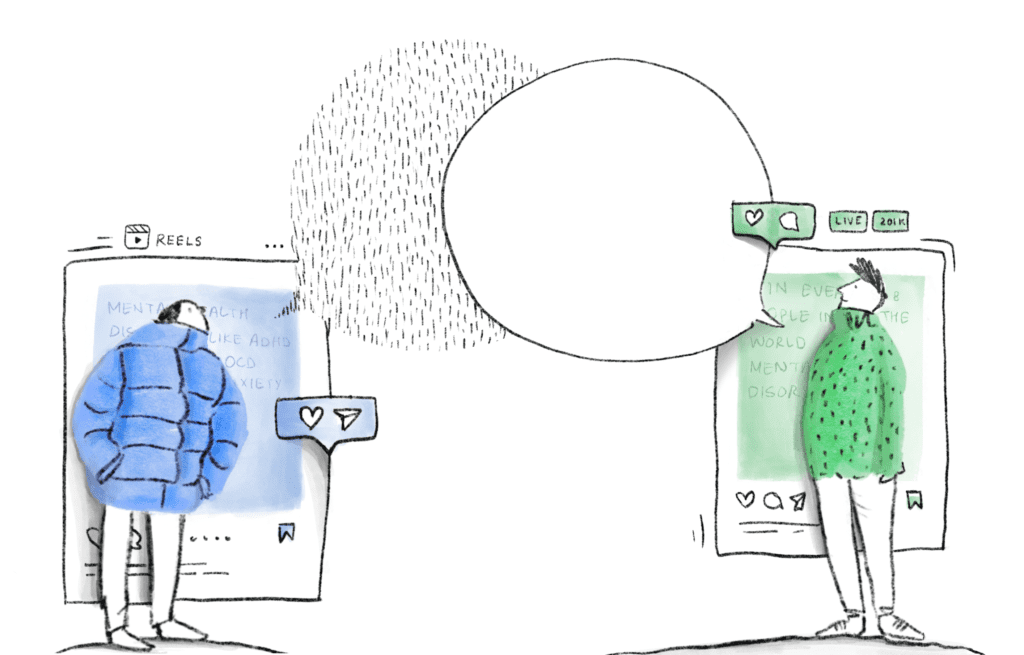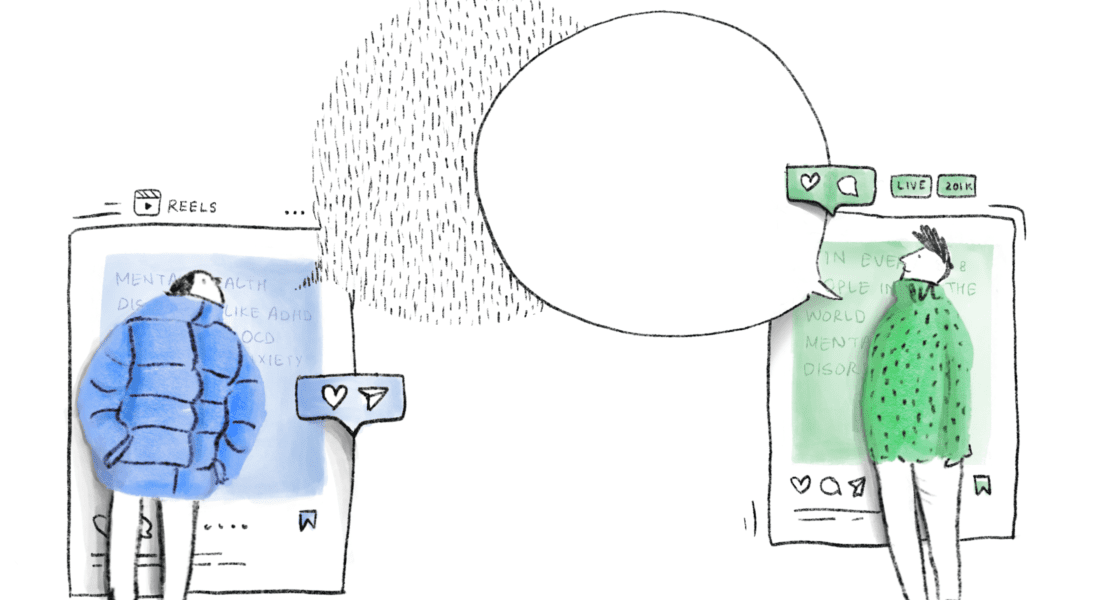
The amazing thing about social media is that it has made a lot of complicated, inaccessible mental health jargon accessible to people. It has allowed for them to learn more about their mental health, understand themselves better, seek support, find community and engage in advocacy.
Why is self-labelling important?
The process of undergoing official diagnosis can be expensive and time-consuming and may not be possible for every person to access. Making mental health knowledge and information about identities accessible can be so profoundly life-changing and healing for communities.
There are many beautiful examples of people learning more about themselves online, self-identifying with a label and finding community.
C-PTSD is a disorder which is still not officially included within the DSM (this the official diagnostic system used by many mental health professionals), despite many mental health professionals advocating for it. Though this remains contentious within the mental health field, there are forums on Reddit for trauma survivors to connect with each other, share resources, information and support. This is especially important since community social support is considered vital when it comes to healing from interpersonal trauma. Gatekeeping information and resources in the name of science and objectivity could come at the cost of healing for some communities.
The neurodiversity movement also has important implications for the benefits of self-labelling. According to this paradigm, variations in neurological development and functioning (what we call ADHD, Autism, and a spectrum of other identities) are a natural and important part of humanity. Neurodiversity is a self-advocacy movement rooted in beliefs about disability justice, arguing for the inclusion, acceptance and equality of people with neurological differences. Neurodivergent people have unique skills and strengths and a lot of their struggles are related to having to live in a world designed for neurotypicals. For example, autistic people find it easier to hyper-focus on one subject for a long period of time, but neurotypical ways of studying and working involve a lot of task and context shifting.
Self-identifying instead of seeking an official diagnosis is important for neurodivergent people since not everyone who is neurodivergent can easily get an official diagnosis. Because a lot of research on neurodivergent people has been done on white boys and women, queer folks and people of colour often do not receive a label for their actual identity until much later, if at all. These communities are more likely to ‘mask’ or camouflage their neurodivergent traits, making it harder for mental health professionals to notice them. They may hence, also be misdiagnosed with anxiety, depression or Borderline Personality Disorder.
Additionally, the biomedical model (which is the lens used by most clinicians), primarily focuses on ‘deficits’ rather than the many strengths and skills neurodivergent people have. Even when it comes to treatment provided by many mental health professionals, there is also a limited focus on how many of the challenges faced by neurodivergent people may be due to living in an environment built by and for neurotypical people. For example, many neurodivergent people find bright lights and loud sounds in most spaces sensorially overwhelming and exhausting, which of course adversely affects their mental health.
This results in treatment that focuses a lot more on ‘fixing’ the individual instead of looking at ways in which the environment could be adapted in ways that are supportive for people.
Are mental health professionals experts at diagnosis?
If we are to critique the process of self-diagnosis as inaccurate, we should also look at how accurate diagnosis is when done by mental health professionals. There have been many critiques of diagnosis as it is done in the conventional sense. Therapists find it much easier to diagnose clients after the first session than after the tenth, indicating a low reliability of diagnosis.
Other critics argue that there are so many overlaps between disorders (called ‘comorbidities’) because a classification based on symptoms is pretty arbitrary. Others argue that a classification based on symptomatology isn’t helpful as many disorders have their roots in trauma.
Historically, the mental health community has been guilty of pathologizing many marginalised communities. Even currently, queer people and women receiving higher rates of diagnosis for personality disorders.
Therapists are very concerned about people’s own misconceptions and biases regarding certain labels and identities, but what about their own? How does labelling people with particularly stigmatising labels influence the ways in which mental health professionals relate to them? Within the anti-psychiatry movement, user-survivors of mental health services have spoken about how being diagnosed with personality disorders was a traumatic experience which led to a lot of maltreatment and abuse at the hands of mental health workers
Given how contentious the subject of our current diagnostic systems are even amidst ‘experts’ – who are we to decide that people experiencing mental health concerns are not capable of making sense of their own experience through self-labelling? Should it not be a moral obligation on our part as mental health professionals to equip and empower people with accurate information and resources to allow them to make their own decisions about labels?
Diagnostic systems are not objective, but are also influenced by socio-political events
Even historically, people, communities and social movements have been a significant part of what gets included and excluded in the DSM. In 1973, it was in response to the LGBT liberation movements, that American Psychological Association declared that homosexuality was not a mental illness. This was, in fact, done by a vote and not through any so-called scientific procedure or carefully backed research that the DSM prides itself on.
In a similar vein, in 1980 PTSD as a diagnosis was included in the DSM III as a result of lobbying from the Vietnam Veterans Working Group which was composed of war veterans, anti-war activists, mental health organisations, and psychiatrists alike.
The fact that community-led movements have significantly influenced diagnostic systems and have proven that even the process of creating (and removing) diagnoses is not entirely objective or scientific. It also shows that lived experience is important in the creation of knowledge systems and should be given importance even when it comes to dispensing this information.
A system is only helpful if it’s serving the people it claims to be supporting. Given the widespread movements against conventional forms of psychiatry, perhaps it’s time to consider shifting the power to label from the hands of professionals to where it belongs – in the hands of the people.
Also read The case against social media diagnosis article for better understanding.

